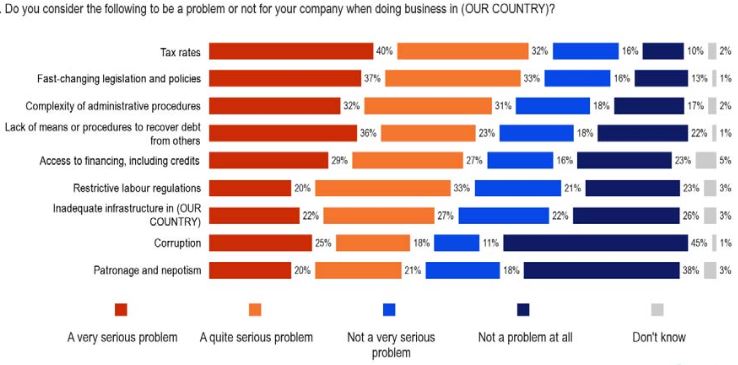A report by the European Commission says EU corruption is costing the economic bloc’s economy at least €120 billion ($162 billion) each year.
More than three-quarters of EU citizens say believe corruption is widespread in their countries.
In some countries people’s personal experience with bribery was found to be relatively high. Between 6% and 29% of Croatians, Czechs, Greeks, Romanians, Bulgarians and Lithuanians reported having been asked to pay a bribe or expected to pay one during the last 12 months.
Levels of bribery were especially high in healthcare in Hungary 13%, Slovakia 14% and Poland 15%.
EU corruption levels uneven
EU Member States have taken several measures over recent years to address corruption, however, the Commission says the results have been uneven and more needs to be done to prevent and punish corruption.
The EU Anti-Corruption Report describes the situation in each Member state, what anti-corruption measures have been implemented, which ones are effective, what needs improving and how.
According to the report, the nature and levels of corruption vary from country-to-country, as do their measures to address it and their efficacy. It also shows that in every Member State, corruption deserves greater attention.
EU corruption and doing business
Seventy-two percent of respondents said tax rates are most likely to be problems for businesses, followed by fast changing legislation (70%). Forty-three percent see corruption and 41% nepotism and patronage as problems.
Twenty-five percent of companies say that corruption is a very serious problem when doing business in their country.
(Source: European Commission)
Corruption undermines democracy
EU Commissioner for Home Affairs, Cecilia Malmström, said:
“Corruption undermines citizens’ confidence in democratic institutions and the rule of law, it hurts the European economy and deprives States from much-needed tax revenue. Member States have done a lot in recent years to fight corruption, but today’s Report shows that it is far from enough. The Report suggests what can be done, and I look forward to working with Member States to follow it up.”
The European Union has an anti-fraud agency, Olaf, which investigates corruption and fraud in the EU budget. However, it has a small budget (23 million euros) and has fairly limited powers.
Below are some highlighted observations the Commission made:
- Public procurement is susceptible to corruption. It represents approximately one-fifth of the European Union’s GDP (gross domestic product). Better integrity standards and controls are required.
- Corruption levels tend to be higher at regional and local levels.
- Codes of conduct for the funding of political parties need to be tightened up.
- Although there are regulations regarding conflicts of interest, they are not enforced properly.
- The monitoring and investigating of corruption across the EU varies enormously.

